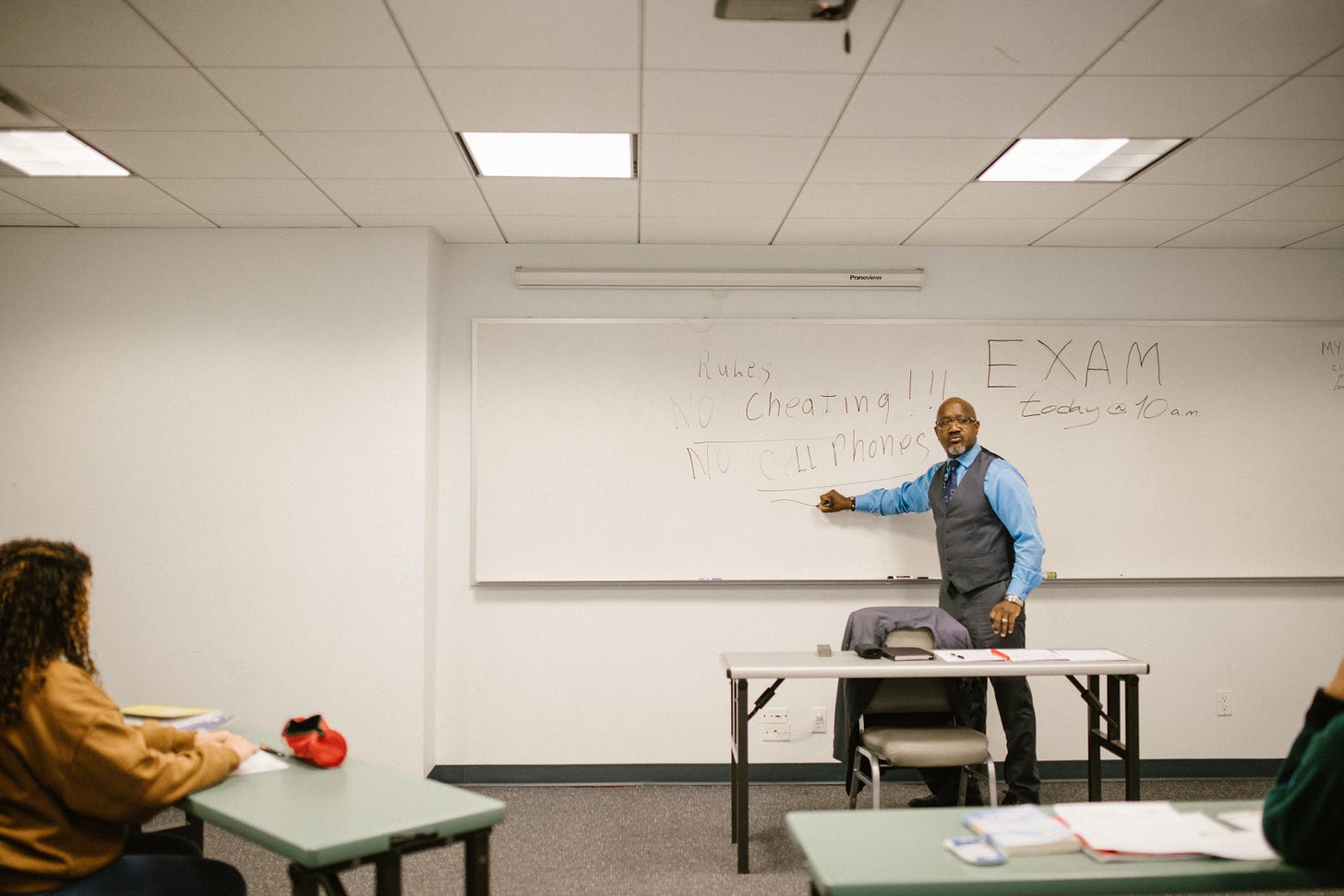"PPPPushing Limits" (Four P's #164)
Living Longer, Wanting More, CRT, & a Premature End of Summer
Would you want to live forever?
It might sound like an easy answer. Immortality certainly has some advantages. But it also comes with a slew of downsides. Specifically, watching everyone you'll ever love die, watching new people make old mistakes, and old people make new mistakes. Forever is a pretty long time to have to deal with the stupidity of humanity.
It’s also highly unrealistic. So maybe we should start with more attainable goals instead?
Something Practical: LIVING LONGER
Based on no statistical evidence whatsoever, living LONGER is probably something many of us do want, assuming we can do it comfortably and not in some feeble, declining, or decrepit state. To survive is instinctual. It’s in our DNA.
Unfortunately, there are a million different things that can kill us. Cancer. COVID. Heart attacks. Gun violence. Getting hit by a bus. Falling asleep while driving. Rock climbing. Making toast in the bathtub… You get the idea. Fortunately, both the private and public sectors dedicate significant amounts of time and resources to mitigating risks, making things safer, improving the quality of life, and extending its duration.
In the 20th century, humanity achieved the unthinkable: doubling of human life expectancy across the world. The industrial revolution and investments in science and technology gave us a roadmap. So what did we do right, and what can we learn from?
Vaccination: At the end of the 18th century, a doctor named Edward Jenner noticed that milkmaids had an immunity against smallpox compared to most other people. How? Exposure to a similar, but far less threatening, disease: cowpox. The first vaccination came when Jenner injected cowpox into a child, but the idea of inoculation isn't new. Vaccinations normally make use of a similar but less harmful disease in order to induce immunity and inoculation involves deliberately infecting people with live strains of the real virus. And by the twentieth century, vaccination mandates and requirements had become a global life-saving technique.
Decontamination: There's a famous meme that George Washington never knew that dinosaurs existed. He also never knew what a germ was. French chemist Louis Pasteur developed modern germ theory in the 1860's, proving that food spoiled because of contamination by invisible bacteria, not because of spontaneous generation. Many people believe that a contaminated glass of milk killed Zachary Taylor, the twelfth president of the United States. Pasteur posited that bacteria caused infection and disease, but his revolutionary method didn’t catch on in the US for about 50 years. Milk manufacturers resisted pasteurization until the early twentieth century, when political pressure and government regulation made it mandatory.
Medication: Medicines of all kinds have been around for millennia. But it's taken strict regulations to make medicine safe and effective. But we only really gained traction is the fight against bacterial diseases when Alexander Fleming accidentally discovered penicillin, which became a gateway drug for other antibiotics. Years of testing before, during, after World War II, and then development of these antibiotics at scale, required global cooperation, and will again for the iteration of future medication.
Regulation: The U.S. Food and Drug Administration regulates the production and sale of food and medicines in the United States. But as recently as 1960, the FDA only had three physicians on staff. Drug manufacturers did not have to prove that their drugs actually worked. So long as a medicine wasn’t actively harmful, you could legally take it to market. It wasn't until the FDA began studying the effects of thalidomide on babies around the world, and ultimately stopped it from being sold in the U.S. Personally, I'd never heard of thalidomide until Billy Joel sang about it (Isn't "We Didn't Start the Fire" a great history class?), and the scientific, public and legislative reaction to the thalidomide tragedy ushered in an age of evidence-based medicine. Congress strengthened the FDA and declared that drug companies would now be required to prove drugs’ efficacy – not merely their safety.
Transportation: While car accidents and plane crashes happen, improvements in transportation made it possible for ideas, people, and goods to get to more places faster. And these methods get faster and safer with every advancement. Whereas sunken ships didn't provide builders with key learnings, we now have standardized safety features in every car: seat belts, airbags, even recessed steering wheels. Volvo's introduction of the first three-point seat belt, which they allowed other manufacturers to adopts, reduced car crash fatalities by an estimated 75%.
The doubling of life expectancy over the last century has been profound, but if we are going to do it again in this century (Note: we're behind), advancements in science in technology must not only be explored, but embraced. New and old diseases continue to plague us, hunger is killing millions each year worldwide, advancements in weapon technology, new communications and media platforms that proliferate dangerous ideas, the deterioration of our mental health and self-care, and many other things pose significant risks to our health and safety.
Lessons of the past have shown the power of human intelligence and innovation. It would be foolish for us to ignore or throw that away now. Yes, death is coming for each and every one of us, but if we can find ways to stave it off and live longer... well just think about how many more Four P's you'll have to look forward to over the next 130 years.
Something Professional: The Ambition Mission
What good is living longer if you're not growing, pushing, striving, achieving? Not everything in life has to be a win, but there is progress in learning from failures and losses. It's okay to want to be better. To do better. To achieve more. To even attain more.
Wanting any or all of these things is ambition.
Ambition is neither good nor bad. It can help us achieve our dreams or it can lead to utter disappointment. Greed may not be as good as Gordon Gekko promised, but ambition should be cultivated and celebrated, not criticized. Ambitious people tend to struggle because they don’t understand the nature of their ambition. We cannot be great at everything in our personal and professional lives, but grasping the true nature of our ambition, understand how to quantify it, and maximizing achievement over activity also requires acknowledging that it is hard to achieve goals while also keeping up with self-care.
Think of ambition is a means to an end. Understanding the nature of our ambition and what we're trying to achieve requires first starting with clarifying exactly what you want to achieve and how you’ll go about doing that. Authors Nicolai Nielsen and Nicolai Tillisch wrote about a holistic approach to ambition, one that takes into account all the various aspects that make your life meaningful, looking at ambition, well-being, growth, and achievement as a tripod. If one of the legs collapses, the whole structure comes tumbling down. But since this is "something professional," we'll limit the focus here to professional ambition, but being specific about the nature of your ambition will help you pinpoint the size of your aspirations, the intensity with which you need to achieve them, and the direction you want your life to go.
Ambitious people tend to have a lot in common in terms of mindset. We tend to be independent, adaptable, competitive, bold, and driven. We persevere, tackle adversity, and break with convention. Yet these same traits can also limit our thinking. Boldness can become arrogance. Independence can become loneliness. As we learned from our high school reading of MacBeth, too much ambition is a bad thing. Working harder might just as easily be a sign of impatience, not perseverance. What we must really be focused on is maximizing the ROA: "return on ambition."
Talk to any career coach and the first question she will ask you is: "What is important to you?" Based on your defining principles, your values will help to evaluate your success and guide you as you continue to grow in your career. Goals are not ambitions.
Goals are just end results that you’re working toward.
Your ambition should guide WHY you work.
Something Political: A Critical Theory About Critical Race Theory
What good is living longer if we're not ALL living better? Had it not been for the debates about masking and vaccines, the divisive issues that many public school administrations and school boards would be managing is the role of “critical race theory” in the classroom. Yet until about a year or so ago, most Americans had never even heard of CRT, nor had an opinion on it.
CRT is a way of understanding how American racism has shaped public policy over time, and has been around more than 40 years. The core idea is that race is a social construct, and that racism is not merely the product of individual bias or prejudice, but also something embedded in legal systems and policies.
State legislatures have debated bills seeking to ban its use in the classroom. While most schools do teach the history of slavery, reconstruction, racial segregation, economic and social disparity, there is much less consensus on what the government’s role should be in righting these past wrongs. Add children and schooling into the mix and the debate becomes especially volatile. The academic understanding of critical race theory differs from representation in recent popular portrayal by critics, most of whom are conservative Republicans.
As a result, many are confused about what CRT means, as well as its relationship to other terms, like “anti-racism” and “social justice.” Conservatives blame CRT for everything from the 2020 Black Lives Matter protests, LGBTQ clubs in schools, diversity training in federal agencies and organizations, California’s ethnic studies model curriculum, the free-speech debate on college campuses, and alternatives to exclusionary discipline.
Much of the issue that critics have with the theory is that it even unintentional racism is part of everyday life, so people that fuel racism just by going about their everyday lives. Others claim that the theory advocates discriminating against white people in order to achieve equity. Fundamentally, though, the disagreement is rooted in different conceptions of racism. CRT puts an emphasis on end results, not specifically beliefs, and it calls on these outcomes to be studied and corrected.
So why is this coming up in the context of public schools? If racism is inherent in our institutions, policies, and practices, it would make sense that public education is contributing to persistent racial inequalities in society, and be a place to address them. Students of color make up the majority of school-aged children now, yet so far as I can tell, the current debate appears to spring not from the academics and scholars, but from fear among critics that white students will be limited or exposed to self-demoralizing ideas. As of the summer, legislation outlawing CRT in schools has passed in Idaho, Iowa, Oklahoma, and Tennessee. Yet it remains unclear what can and what cannot be taught in classrooms.
No matter what, individual teachers and school curriculums will determine what gets taught and shared. This is hard to enforce. What history lessons to teach? What books to read? Is this a violation of the First Amendment? How is this not a slippery slope for restricting other topics in education? We’re just beginning to ask, if not answer, these questions…
Something Personal: Ya' Gotta Bereave
And what good is living longer if it just means more years of suffering through disappointing sports seasons? No, baseball season isn't officially over, but for fans of the New York Mets, the optimism and expectation for what the 2021 season have long since waned. Another season of unfulfilled potential. Another mid-September disappointment. Another round of post-mortems and retrospectives written and shared by analysts far more expert in the sport than I. Another offseason to question whether the mistakes of the past are destined to be repeated again. Another valley in the recurring arc of our unique version sports fandom.
Rooting for a team ultimately ends in disappointment for all but one team's base every year. While some fans may see progress and hope for the future, most see what could have been... should have been. Some seek solace and comfort in the community or vent on social media. Others will choose to focus on the fond memories made at the ballpark with family and friends. For me, it's likely a bit both.
For me, the disappointment is a bit less stinging this year. Or perhaps I'm just growing more numb to it? The 2021 season started with an air of excitement, and while I was not under the impression that the Mets were a favorite to make the World Series, I was hoping for growth, progress, chemistry and entertainment. New ownership, highly touted free agent signings, players returning from injury, and the best pitcher on the planet. April and May brought two months of excitement, bliss and winning. Hope sprung in spring. People were getting vaccinated, the stadiums were opening up, and even with injuries to most of the Mets starters, the team kept winning thanks to the "Bench Mob."
And then… the lack of an identity on offense, more injuries, and the rapid decline of relief pitching took its toll. Jacob deGrom was shut down in early July, the hitters stopped hitting, the manager made bad, costly decisions, and fans even started turning on the players. The season unofficially ended when the Mets dropped from first to fourth place in a matter of two weeks in late August/early September. Mourning came early in Flushing, Queens.
Sports should be a diversion. When it feels like so much is going wrong in the real world, sports should be a distraction from our problems, pressures, and pains. So in a way, the premature end of the Mets season may actually mean less stress on a nightly basis. As the final weeks of the season wind down, we can and should still watch. Weather-permitting, we should still head out to the ballpark. But it's okay to care a little bit less about the outcomes... less chance for disappointment. Because it's only a matter of time before we need to start thinking about the offseason and preparation for next season... before our disappointment is replaced with foolish, unrealistic hope yet again.







